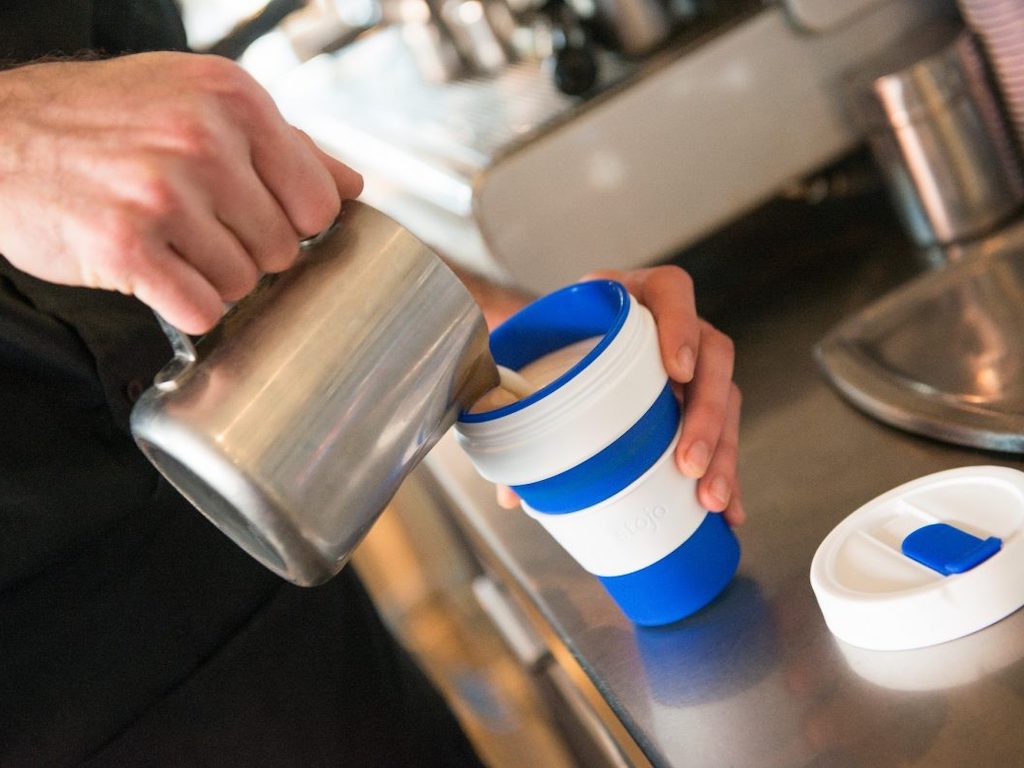3 Mins Read
Whilst some food establishments have chosen to stop accepting reusable containers and cups during the coronavirus pandemic, experts say that these fears are unfounded. In a new statement, scientists say that reusable containers do not increase the chance of transmission of the coronavirus, and are completely safe to use by employing basic hygiene.
On Monday (June 22), more than 100 scientists from 18 countries published a signed statement to reassure that reusable containers, cups and cutlery are safe to use during the Covid-19 pandemic. The group of experts included epidemiologists, virologists, biologists, chemists and doctors, and drew their conclusions from the best available scientific evidence and guidance.
Scientific evidence shows that the primary way that Covid-19 can spread is through respiratory droplets when an infected person coughs or sneezes, which can be transmitted to another person who is exposed to the aerosolised droplets. Washing hands and mask wearing is therefore the top priority in terms of precautionary measures.
The experts say that any public surface, whether reusable or not, can be contaminated with the virus, but the problem for reusables can be solved by employing basic hygiene. Washing reusable containers thoroughly with hot water and detergent or soap will be an effective measure against contamination, meaning there is no reason to worry about reusables during the pandemic.
The conclusion represents hope that the environmental battle against single-use plastic waste will be able to overcome lost ground due to unfounded fears over coronavirus contamination.
Speaking to the Guardian, Charlotte K. Williams, a chemistry professor at Oxford University and a signatory of the statement, said: “I hope we can come out of the Covid-19 crisis more determined than ever to solve the pernicious problems associated with plastics in the environment.
“In terms of the general public’s response to the Covid crisis, we should make every attempt to avoid over-consumption of single-use plastics, particularly in applications like packaging.”
Over the past few months, some food establishments have stopped accepting reusables. Starbucks, for instance, made the decision to no longer allow customers to bring in their own coffee cups and Pacific Coffee has suspended their Bring Your Own Mug offer.
Certain grocery chains in the United States have even discouraged the use of tote bags in fear that they may supposedly help spread the coronavirus. Other offices are limiting the use of reusable personal items, such as cutlery and water bottles in the workplace until further notice.
In light of evidence that reusables are safe, environmental activists say that the plastic industry, backed by right-wing think tanks and lobbying groups, have exploited the crisis to push against bans on single-use plastics.
Currently, the world throws out 600 billion single-use cups, 1 trillion plastic bags and 480 billion water bottles annually. The recent statement from scientists is a confirmation that the coronavirus should not provide any reason for businesses and consumers to contribute anymore to the global waste crisis.
Read our earlier news coverage of Covid-19 and tips on prevention here.
Lead image courtesy of Bear and Bear / Stojo.




